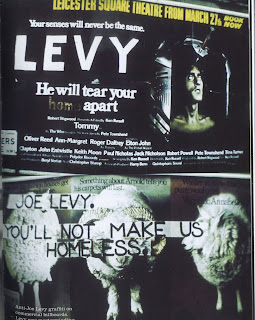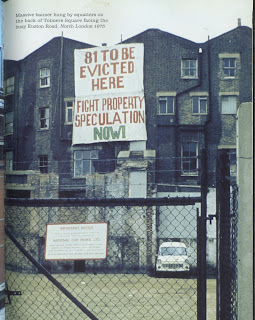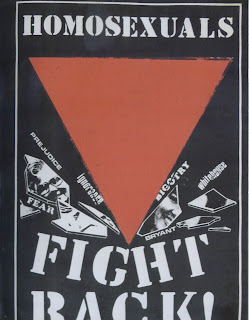Goodbye to London is an art book which focusses on the 70's and the personal journey and photography of author Astrid Proll. The book documents the struggles of the numerous subcultures throughout London in the seventies, looking at workers, artists, squatters and the gay community. Proll takes essays from other designers and some historians to showcase the struggle of the people vs establishment through the seventies. Her book looks at art work which effects the social groups mentioned within the book, looking at photomontagists, political artists and other photographers capturing social times.
"Same thing day after day, tube - work - dinner - work - tube - work - tube - armchair - TV - sleep - How much more can you take - one in ten goes mad - one in five cracks up" - Graffiti on metropolitan line between Ladbroke grove and Royal Oak Stations, attributed to King Mob.
Black Panther, Stokely Carmichael defined institutional racism in the late 60's as "The collective failure of an organisation to provide an appropriate and professional service to people because of their colour, culture or ethnic origin."
King Mob - Christopher Gray - King Mob was an English radical group based in London during the late 1960s/early 1970s. It was a cultural mutation of the Situationists and the anarchist group UAW/MF. It sought to emphasise the cultural anarchy and disorder being ignored in Britain, with the ultimate aim of promoting proletarian revolution.
Angry Brigrade - John Baker - The Angry Brigade were a left-wing revolutionary group responsible for a series of bomb attacks in England between 1970 and 1972.
Hackney Flashers - The Hackney Flashers were a collective of broadly socialist-feminist women who produced notable agitprop exhibitions in the 1970s and early 1980s.[1] Working in the United Kingdom during second wave feminism (1960s - 1980s), the Hackney Flashers are an example of collectives prevalent in the latter half of 20th century that worked to raise consciousness of social or political issues relevant to the times. This groups' original aim was to make visible the invisible and document women's work in the home and outside of it, helping to make the case for childcare and show the complex social and economic issues of women and childcare.
References of work taken from the book;
Margaret Harrison - Woman Demonstrator
1st national womens day 1971
Peter Kennard - Tortured Scientist at work.
1973, originally for workers press.
Peter Kennard - Bacon the mean cut. 1973.
Peter Kennard - Ireland Tortured, 1978
Original cover photomontage for socialist challenge.
Peter Kennard -Support the miners 1977
Peter Kennard - Original Nixon - 1973
Women At Work show - 1979 - Hackney Flashers photography















No comments:
Post a Comment